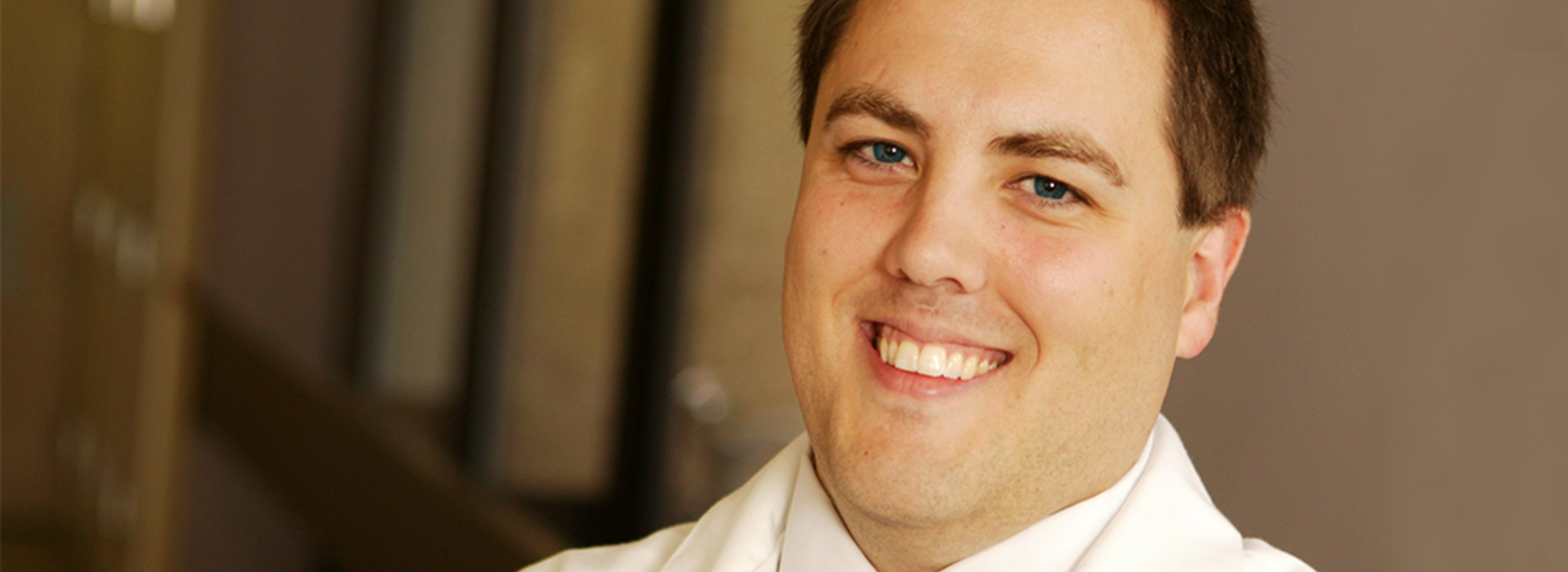
Professor of Medicine Uses National Recognition to Advocate for Change in Interprofessional Health Teams
Brian Sick, ’04, MD, an associate professor in the Department of Medicine’s Division of General Internal Medicine, has been elected as a Distinguished Fellow of the National Academies of Practice (NAP). The NAP is a non-profit organization that advises governmental bodies on the U.S. healthcare system. Dr. Sick will be a member of the Allopathic and Osteopathic Medicine Academy, which, like the membership of each of the 13 Academies, is capped at 250 people.
Distinguished practitioners and scholars are elected by their peers, often due to previous accomplishments. The recognition stems from Dr. Sick’s past work to advance interprofessional health education and collaboration.
In 2004, he completed an internal medicine and pediatrics residency with the University of Minnesota Medical School. Since then, he has worked within numerous interprofessional teams as a primary care physician, while continuing to maintain expertise in both internal medicine and pediatrics.
In 2007, he took over as medical director of the Phillips Neighborhood Clinic, a free clinic in south Minneapolis that involves 400 students from the University’s health professions who provide free care to underserved populations under the supervision of volunteer health professionals.
“Seeing that clinic in action and seeing what great interprofessional care looked like was a strong motivator for me to go down this path. That and the past clinical experiences where I’ve had a chance to move our work upstream is really what drove me to this point,” Dr. Sick said.
Dr. Sick currently serves as the director of Interprofessional Education for the Academic Health Sciences, which encompasses 17 different health programs across the University of Minnesota. His role oversees education and collaboration between different groups of students, including future physicians, nurses, pharmacists and others. Due to his portfolio of work, he will be among the 2020 inductees to the University’s Academy for Excellence in the Scholarship of Teaching and Learning. Now, he will build upon these past experiences with the help of the NAP’s wide-reaching platform to advocate for expanded roles within interprofessional settings.
“For me personally, early in my career as a physician, not knowing the role of a social worker, for example, was a huge hindrance to me taking care of patients. So, my goal is to educate students early in their education. Seeing how teamwork benefits patients was really where this came from, and pairing that with the fact that many students learn in silos – how to be a physician, nurse or pharmacist – unless we prepare them on how to work together prior to being in the community, they’re not going to be ready for that kind of challenge,” Dr. Sick said.
As COVID-19 vaccines begin to be disseminated throughout the country, the benefits of this approach are on full display.
“I think the expansion of roles by various health professionals is going to spread the impact of what we can do as healthcare providers. For example, dentists are now giving out COVID-19 vaccines. How many more people are able to get the care they need because health professionals are working to their full scope of practice? It’s more beneficial for the patient population when you utilize the skillsets of the people who are already in place,” Dr. Sick said.
Over time, Dr. Sick has seen that it’s crucial to move ideas further upstream to turn them into legislative action. He has already spoken with legislative committees to share his perspective, such as by advocating for pharmacists to have expanded roles since they’re readily available and widely distributed throughout all parts of the country.
“It can only help the population if we expand the roles of different health professionals on a team. Beyond that, there’s the educational part that I’m passionate about. We need to prepare our students of all professions for working together collaboratively,” Dr. Sick said.
The NAP provides the platform, and its interprofessional membership provides the knowledge and experiences to advocate. In tandem, they create a structure that informs lawmakers, fellow healthcare professionals and many other stakeholders.
“It’s not so much about empowering the individual but rather, collectively, having a voice that can then be used to advocate for change. I think probably the biggest benefit is to be able to work with peers who are also considered experts in their field to be able to talk about how to move ideas forward. That’s one of the biggest ‘whys’ of my involvement with the NAP,” Dr. Sick said.